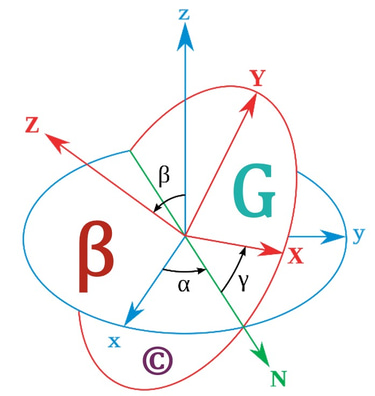The Future of Energy Storage: Exploring Home Battery Systems
As the world shifts toward renewable energy, the need for efficient energy storage solutions has never been greater. Solar panels and wind turbines generate clean energy, but what happens when the sun isn’t shining or the wind isn’t blowing? This is where home battery systems come into play. These innovative devices store excess energy for later use, providing homeowners with greater energy independence, cost savings, and resilience. In this blog, we’ll explore the future of energy storage and how home battery systems are revolutionizing the way we power our homes.
ELECTRICAL ENGINEERINGPROPERTY AND BUILDINGSSUSTAINABILITY
Engr. Benjamin V. Gonzales Jr.
3/10/20253 min read
What Are Home Battery Systems?
Home battery systems, also known as residential energy storage systems, store electricity generated from renewable sources (like solar panels) or drawn from the grid during off-peak hours. This stored energy can be used during power outages, at night, or during periods of high energy demand. The most common type of home battery system uses lithium-ion technology, similar to the batteries in electric vehicles and smartphones.
Why Home Battery Systems Are the Future
1. Energy Independence
Home battery systems allow homeowners to store and use their own energy, reducing reliance on the grid.
Solar Pairing: When paired with solar panels, batteries store excess solar energy for use at night or on cloudy days.
Backup Power: During grid outages, batteries provide uninterrupted power, keeping essential appliances running.
2. Cost Savings
By storing energy when it’s cheap and using it during peak hours, homeowners can save on electricity bills.
Time-of-Use Optimization: Batteries can be programmed to discharge during peak rate periods, avoiding high electricity costs.
Net Metering: In some areas, stored energy can be sold back to the grid, further offsetting costs.
3. Environmental Benefits
Home battery systems support the transition to renewable energy by making it more reliable and accessible.
Reduced Carbon Footprint: Storing and using renewable energy reduces reliance on fossil fuels.
Grid Stability: Widespread adoption of home batteries can help balance the grid and reduce strain during peak demand.
4. Increased Resilience
In areas prone to power outages or natural disasters, home battery systems provide a reliable backup power source.
Emergency Preparedness: Keep lights, refrigerators, and medical devices running during outages.
Peace of Mind: Know that your home will remain powered even when the grid goes down.
How Home Battery Systems Work
Home battery systems are typically integrated with solar panels and connected to the home’s electrical system. Here’s how they function:
Energy Generation: Solar panels generate electricity during the day.
Energy Storage: Excess energy is stored in the battery instead of being sent to the grid.
Energy Usage: At night or during outages, the stored energy is used to power the home.
Grid Interaction: If the battery is fully charged, excess energy can be sent back to the grid (if allowed by local regulations).
Key Features to Look for in a Home Battery System
When choosing a home battery system, consider the following features:
1. Capacity
What It Means: The total amount of energy the battery can store, measured in kilowatt-hours (kWh).
What to Consider: Choose a capacity that meets your household’s energy needs and aligns with your solar system’s output.
2. Power Rating
What It Means: The amount of energy the battery can deliver at once, measured in kilowatts (kW).
What to Consider: Higher power ratings are necessary for homes with high energy demands or multiple appliances.
3. Depth of Discharge (DoD)
What It Means: The percentage of the battery’s capacity that can be used without damaging it.
What to Consider: A higher DoD means more usable energy and better value.
4. Lifespan and Warranty
What It Means: The number of charge cycles the battery can handle before its capacity degrades.
What to Consider: Look for batteries with long lifespans (10+ years) and comprehensive warranties.
5. Compatibility
What It Means: The ability of the battery to integrate with your existing solar system and inverter.
What to Consider: Ensure the battery is compatible with your setup or choose an all-in-one system.
Popular Home Battery Systems
Here are some of the leading home battery systems on the market:
1. Tesla Powerwall
Capacity: 13.5 kWh
Features: Sleek design, high energy density, and seamless integration with Tesla solar products.
2. LG Chem RESU
Capacity: 9.8 kWh to 16 kWh
Features: Compact size, high efficiency, and compatibility with most inverters.
3. Sonnen Eco
Capacity: 5 kWh to 20 kWh
Features: Modular design, long lifespan, and smart energy management.
4. Enphase Encharge
Capacity: 3.36 kWh to 10.08 kWh
Features: Scalable, lightweight, and designed for easy installation.
The Future of Home Battery Systems
The home battery market is rapidly evolving, with advancements in technology and decreasing costs driving adoption. Here are some trends to watch:
Solid-State Batteries: These next-generation batteries promise higher energy density, faster charging, and improved safety.
Virtual Power Plants (VPPs): Networks of home battery systems can work together to support the grid and provide additional income for homeowners.
AI and Smart Energy Management: Advanced algorithms will optimize energy storage and usage, maximizing savings and efficiency.
Final Thoughts
Home battery systems are a game-changer for homeowners looking to embrace renewable energy, reduce costs, and increase resilience. As technology continues to advance and prices decline, these systems will become an integral part of the modern home. Whether you’re pairing them with solar panels or using them for backup power, home batteries offer a sustainable and practical solution for the future of energy storage.
If you’re considering a home battery system, start by assessing your energy needs and researching available options. Consult with a professional to design a system that meets your goals and budget. By investing in a home battery system, you’re not just powering your home—you’re powering a brighter, more sustainable future.
By exploring the potential of home battery systems, you’ll be at the forefront of the energy revolution. Take control of your energy usage, save money, and contribute to a cleaner planet. The future of energy storage is here—don’t miss out!





